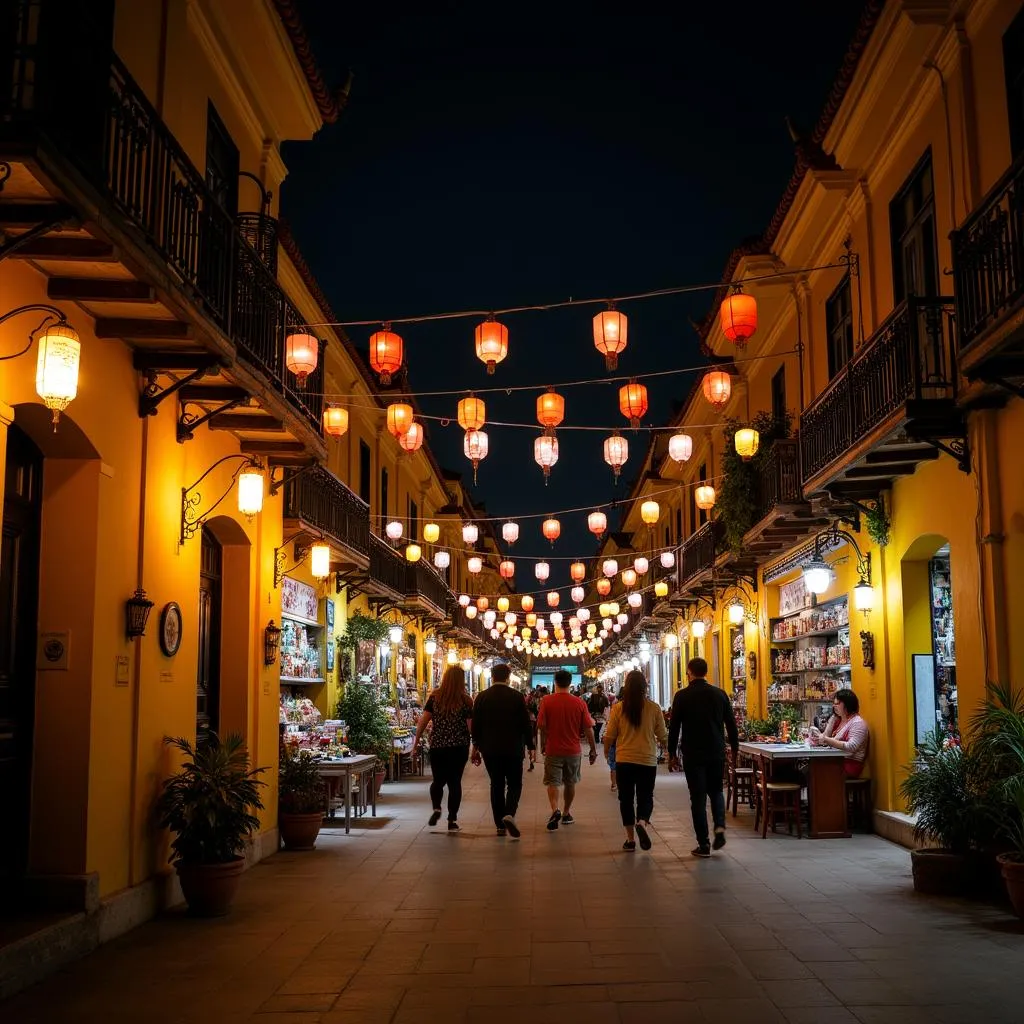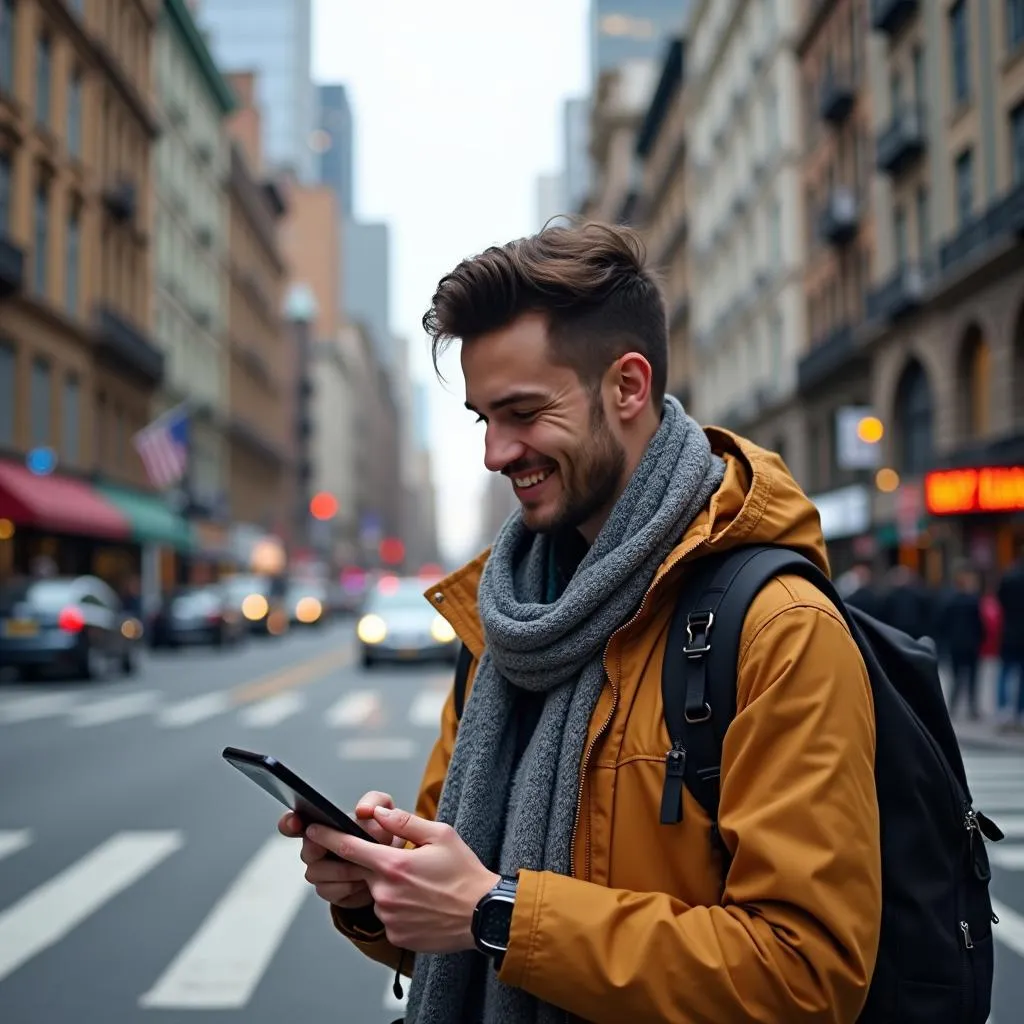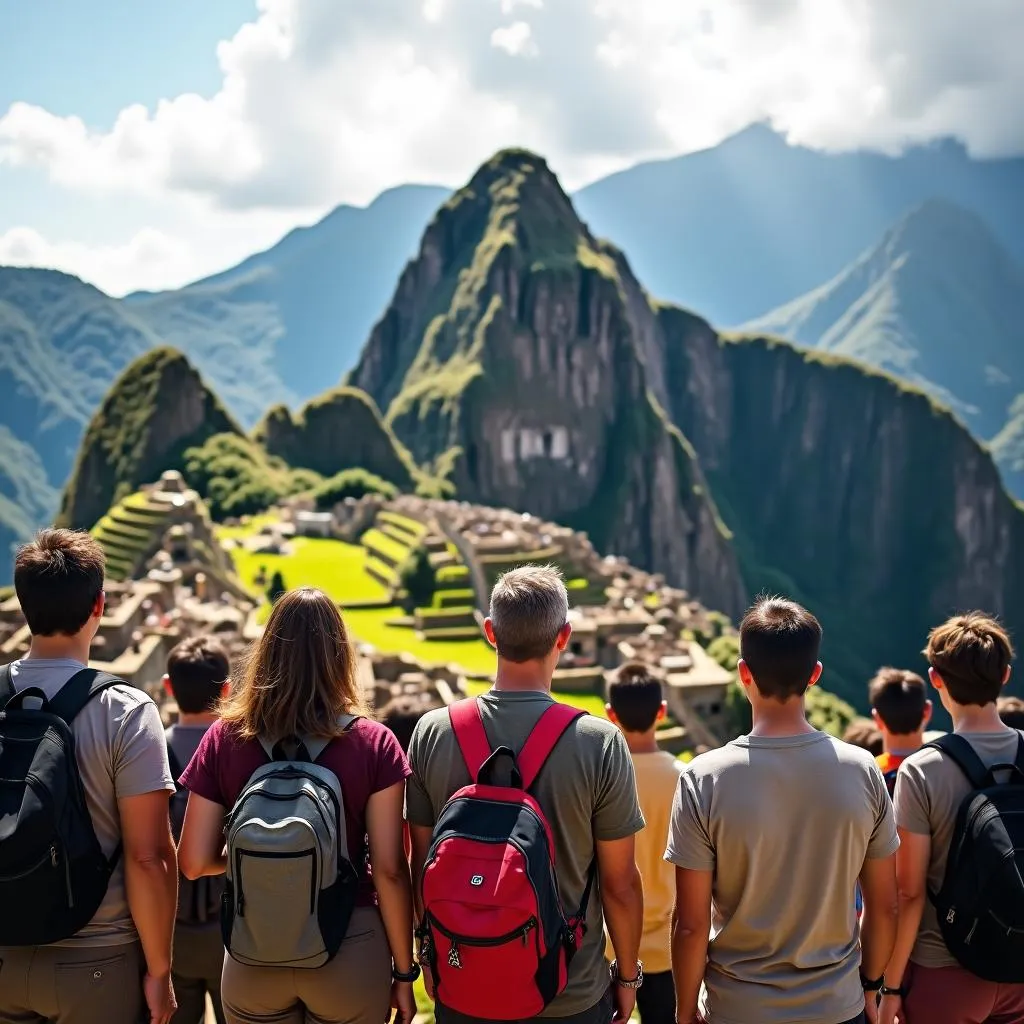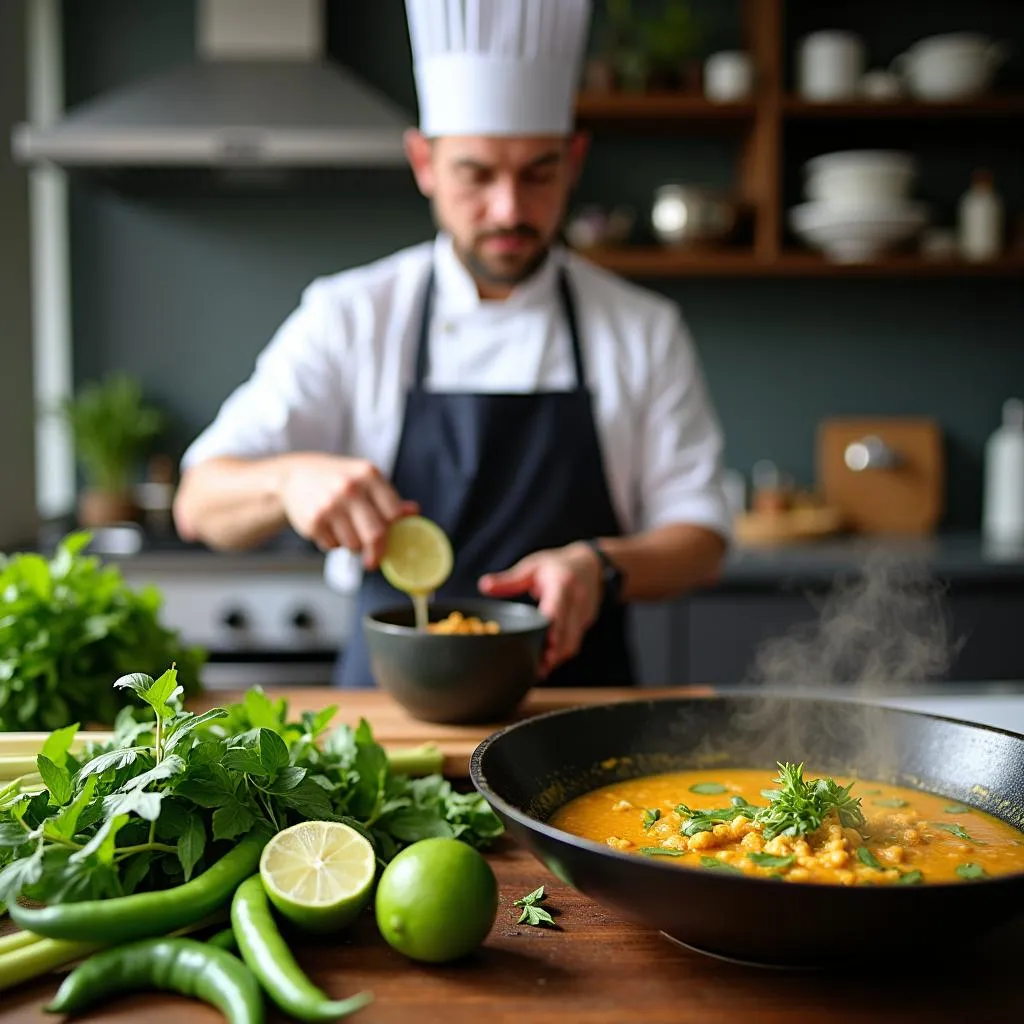Planning and enjoying a trip is a common topic in IELTS Speaking tests. This theme allows examiners to assess candidates’ ability to describe experiences, express emotions, and use a range of vocabulary related to travel and leisure. Let’s explore how to effectively answer questions on this topic and maximize your IELTS Speaking score.
Nội dung bài viết
Part 1: Introduction and Interview
In this section, the examiner may ask general questions about travel and planning trips. Here’s an example question with a suggested answer:
Question: Do you enjoy planning trips?
Sample answer (Band 7-8):
“Absolutely! I find planning trips to be an exhilarating experience. There’s something truly captivating about researching destinations, plotting out itineraries, and anticipating the adventures that lie ahead. It allows me to build excitement for the journey and ensures that I make the most of my time once I arrive at my destination.”
Part 2: Long Turn (Cue Card)
Here’s a sample cue card related to the topic:
Describe a trip you planned and enjoyed
You should say:
- Where you went
- Who you went with
- What you did during the trip
- And explain why you enjoyed this trip
Sample answer (Band 8-9):
“I’d like to talk about a memorable trip I planned and thoroughly enjoyed to the picturesque coastal town of Hoi An in central Vietnam. This enchanting journey took place last summer, and I went with my closest friend, Sarah.
The planning process was incredibly exciting. We spent weeks researching the best time to visit, meticulously crafting our itinerary, and booking authentic accommodations in the heart of the old town. Our efforts paid off spectacularly when we arrived.
During our week-long stay, we immersed ourselves in the local culture. We wandered through the lantern-lit streets of the ancient town, marveling at the well-preserved architecture that seamlessly blends Vietnamese, Chinese, and Japanese influences. One of the highlights was a cooking class where we learned to prepare traditional Vietnamese dishes using fresh ingredients from the local market.
We also took a leisurely bicycle ride through the surrounding countryside, pedaling past vibrant green rice paddies and quaint villages. The serene beauty of the landscape was breathtaking. Another unforgettable experience was a boat trip on the Thu Bon River at sunset, where we released floating lanterns – a local tradition believed to bring good luck.
I thoroughly enjoyed this trip for several reasons. Firstly, the meticulous planning we did ensured that we made the most of our time, experiencing a perfect balance of cultural activities, relaxation, and adventure. Secondly, sharing the experience with a close friend made every moment more special and memorable. Lastly, Hoi An itself exceeded our expectations with its charm, rich history, and warm hospitality. The trip left me with a deep appreciation for Vietnamese culture and a strong desire to return someday.”
 Hoi An ancient town illuminated with colorful lanterns at night
Hoi An ancient town illuminated with colorful lanterns at night
Follow-up questions:
- How did you manage your budget for this trip?
- Were there any challenges you faced during the planning process?
Sample answer for follow-up questions (Band 8-9):
-
“Managing our budget was a crucial aspect of our planning. We set a realistic budget early on and prioritized our spending based on our most desired experiences. We opted for a mix of affordable local eateries and a few splurge-worthy restaurants to balance our food expenses. For accommodation, we chose a charming guesthouse that offered great value without compromising on location or comfort. We also took advantage of free walking tours and rented bicycles instead of taxis to explore the area, which not only saved money but enhanced our experience.”
-
“The main challenge we faced was narrowing down our itinerary. Hoi An and its surroundings offer so many enticing activities that it was difficult to decide what to include in our limited time. We overcame this by creating a flexible schedule that included our must-do activities while leaving room for spontaneity. Another challenge was ensuring authenticity in our experiences, as some tours can be quite touristy. We addressed this by reading numerous reviews and seeking recommendations from travel forums to find experiences that offered genuine insights into local culture.”
Part 3: Two-way Discussion
In this section, the examiner will ask more abstract questions related to the topic. Here are some sample questions with suggested answers:
Question: How has technology changed the way people plan and experience trips?
Sample answer (Band 8-9):
“Technology has revolutionized travel planning and experiences in numerous ways. Online booking platforms have made it incredibly easy to compare prices and secure the best deals on flights, accommodations, and activities. Virtual tours and 360-degree photos allow travelers to preview destinations before they even leave home, helping them make more informed decisions about where to go and what to see.
Social media and travel blogs have become invaluable sources of inspiration and information, offering authentic insights and recommendations from fellow travelers. Mobile apps for navigation, translation, and local services have made it easier for travelers to navigate unfamiliar environments and overcome language barriers.
However, this technological advancement has also brought some challenges. The abundance of information available can sometimes be overwhelming, making it difficult for travelers to make decisions. There’s also a risk of over-planning and leaving little room for spontaneity and serendipitous discoveries, which are often the most memorable parts of a trip.
Moreover, the constant connectivity enabled by technology can sometimes detract from the immersive experience of travel, with people focusing more on documenting their trips for social media rather than fully engaging with their surroundings. It’s crucial to find a balance between leveraging technology to enhance travel experiences and disconnecting to truly absorb the essence of a destination.”
 Traveler using smartphone map app to navigate city streets
Traveler using smartphone map app to navigate city streets
Question: Do you think the increasing popularity of travel is having a negative impact on some destinations?
Sample answer (Band 7-8):
“The surge in global travel has certainly brought both positive and negative consequences to many destinations. On the positive side, tourism often boosts local economies, creating jobs and improving infrastructure. It can also promote cultural exchange and foster understanding between different societies.
However, there are undeniable downsides. Overtourism has become a significant issue in many popular destinations, leading to environmental degradation, strain on local resources, and the erosion of cultural authenticity. Venice, for example, has been grappling with the effects of mass tourism for years, with the influx of visitors threatening its delicate ecosystem and changing the fabric of local life.
To mitigate these negative impacts, many destinations are now implementing sustainable tourism practices. This includes limiting visitor numbers, promoting off-season travel, and encouraging tourists to explore lesser-known areas. The key is to find a balance that allows destinations to benefit from tourism while preserving their natural and cultural heritage for future generations.”
Key Vocabulary and Phrases for High Scores
-
Meticulously craft (verb phrase) – /məˈtɪkjələsli krɑːft/ – to create or plan something with great care and attention to detail
Example: “We meticulously crafted our itinerary to include a mix of popular attractions and hidden gems.” -
Immerse oneself (phrasal verb) – /ɪˈmɜːrs wʌnˈself/ – to involve oneself deeply in a particular activity or interest
Example: “During our stay, we immersed ourselves in the local culture by participating in traditional festivals.” -
Exceed expectations (verb phrase) – /ɪkˈsiːd ɛkspɛkˈteɪʃənz/ – to be better or greater than what was anticipated
Example: “The breathtaking scenery of the coastline exceeded our expectations.” -
Prioritize (verb) – /praɪˈɒrətaɪz/ – to arrange items to be dealt with in order of importance
Example: “We had to prioritize our activities due to time constraints, focusing on the most unique experiences.” -
Revolutionize (verb) – /ˌrɛvəˈluːʃənaɪz/ – to change something completely and fundamentally
Example: “Social media has revolutionized the way we share and discover travel experiences.”
Tips from an Examiner
To achieve a high score in the IELTS Speaking test when describing a trip you planned and enjoyed:
-
Use a variety of descriptive language: Incorporate adjectives, adverbs, and vivid imagery to bring your experience to life.
-
Demonstrate a range of grammatical structures: Use a mix of simple, compound, and complex sentences. Include conditional statements and perfect tenses where appropriate.
-
Show enthusiasm: Your tone and choice of words should convey your excitement about the trip. This helps engage the examiner and showcases your ability to express emotions in English.
-
Provide specific details: Instead of general statements, offer concrete examples that illustrate your points. This demonstrates your ability to communicate precisely in English.
-
Practice coherent storytelling: Ensure your description flows logically from one point to the next. Use appropriate linking words and phrases to connect your ideas smoothly.
-
Reflect on the experience: Don’t just describe what happened; explain why it was enjoyable or meaningful. This shows critical thinking and the ability to express opinions in English.
-
Prepare for follow-up questions: Be ready to expand on any aspect of your trip. This could include challenges faced, comparisons to other trips, or broader reflections on travel.
Remember, the key to success in the IELTS Speaking test is to communicate naturally and confidently while showcasing your English language skills. Regular practice with a variety of travel-related topics will help you feel more prepared and perform better on test day.
For more practice on describing travel experiences, you might want to describe a time when you explored a new place on your own or describe a memorable experience you had during a road trip. These exercises will help you expand your vocabulary and improve your ability to narrate personal experiences effectively.


